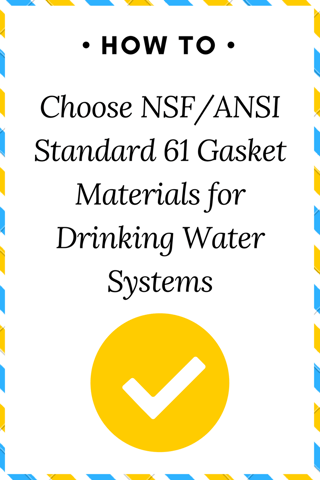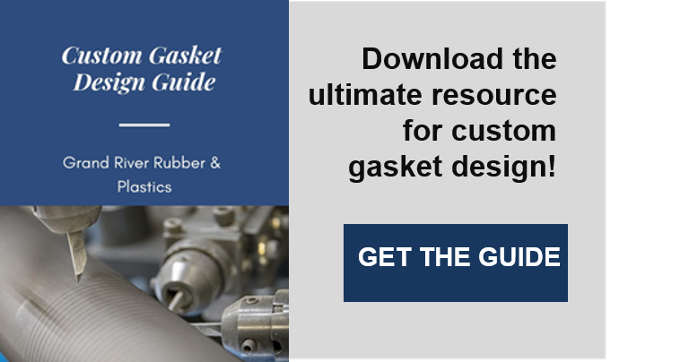
NSF/ANSI Standard 61 establishes health-related requirements that regulate drinking water supplies. NSF/ANSI 61 sets health effects criteria for many water system components including plumbing, process media, protective barrier materials, rubber seals and gaskets and more used in potable water systems.
Currently, forty-eight U.S. states and 11 Canadian Providences have legislation, regulations or policies requiring drinking water system components to comply with, or be certified to, NSF/ANSI 61. Learn how NSF/ANSI 61 affects your projects, the 3 questions you should ask yourself when choosing an NSF/ANSI 61 gasket material for your application, and the EPDM material we recommend for hot water applications.
Why NSF/ANSI Standard 61 Compliance is Important for Rubber Gaskets
Rubber gaskets utilized in drinking water systems must be free from chemicals that can leach into water supplies and lead to health issues or cause unpleasant tastes and odors. Plasticizers, antioxidants, solvents and other additives commonly used in rubber gaskets are designed to create desirable material properties, however, when they come in contact water treatment chemicals like chlorine, they can have a negative reaction. Choosing a gasket manufacturer that understands NSF/ANSI 61 requirements allows you to source the right materials and receive high-quality plumbing components that support your projects.
Consequences for Not Following NSF/ANSI Standard 61
In the United States, failure to meet the requirements of NSF / ANSI Standard 61 can result in steep fines or even legal action. Construction companies and general contractors that use non-compliant components could be required to remove and replace plumbing. Health Canada, Canada’s federal department dedicated to promoting Canadians’ well being and health, strongly encourages the use of drinking water components that meet standards from accredited organizations like the NSF.
How to Select NSF/ANSI 61 Gasket Materials
You can find the NSF/ANSI 61 certified companies and compliant materials in the UL Databases and Directories. Difficulty choosing which an NSF/ANSI compliant or certified component? Keep the following questions in mind when deciding which material suits your application:
- Is the application in a hot or cold environment?
- How frequently will you replace parts?
- Does this material need to support both hot water and cold water services?
Grand River Rubber & Plastics has an EPDM material that is compliant to the NSF 61 Standards. The material is available in durometers of 50, 60 70, and 80. This material has also been tested and approved to the highest temperature rating of 82°C, and works well in hot water applications.


